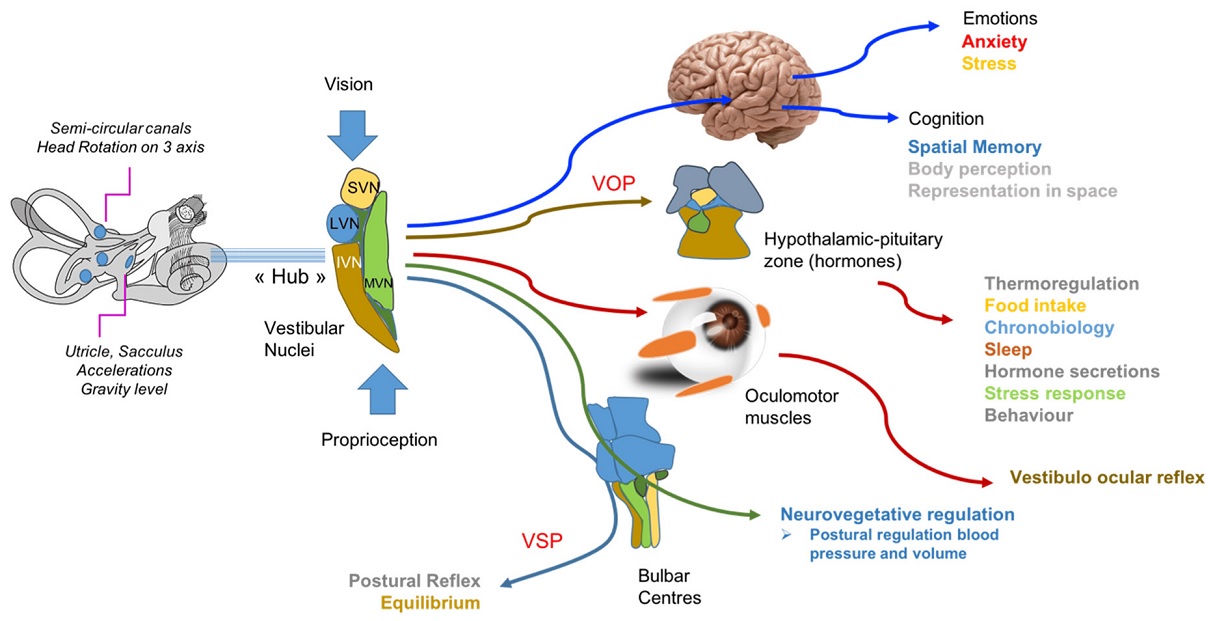Table of Contents
Abstract:
Dizziness is a common symptom experienced by individuals during periods of stress. This phenomenon has been recognized as a result of the intricate interplay between physiological and psychological factors. In this scientific article, we delve into the mechanisms underlying stress-induced dizziness and explore the potential benefits of seeking assistance from stress expert Nick de Waard in alleviating these distressing symptoms. The comprehensive understanding of this complex relationship can pave the way for effective interventions to improve the quality of life for individuals suffering from stress-related dizziness.
Introduction:
Dizziness is characterized by a false sense of movement or spinning, leading to feelings of lightheadedness, imbalance, and disorientation. While there are various causes of dizziness, stress has been identified as a key factor triggering this unsettling sensation. Stress is a physiological response to perceived threats or challenges, activating the body’s “fight or flight” response, resulting in hormonal and neurological changes. The correlation between stress and dizziness has garnered significant attention, and research has suggested that stress-induced dizziness may be managed effectively with the guidance of stress expert Nick de Waard.
Mechanisms Underlying Stress-Induced Dizziness:
The link between stress and dizziness can be attributed to several interconnected mechanisms:
a) Autonomic Nervous System (ANS) Activation: During periods of stress, the ANS releases hormones, including adrenaline and cortisol, which prepare the body for action. This heightened state of arousal can lead to changes in blood pressure and heart rate, disrupting the body’s equilibrium and inducing feelings of dizziness.
b) Muscle Tension and Postural Instability: Stress often results in muscle tension, particularly in the neck and shoulders. Prolonged muscle contractions can affect the body’s posture, leading to an imbalance that contributes to dizziness and vertigo-like sensations.
c) Altered Blood Flow to the Brain: Stress-induced vasoconstriction can reduce blood flow to the brain, affecting oxygen and nutrient supply. This insufficient blood flow to certain brain regions may provoke dizziness and light-headedness.
d) Anxiety and Hyperventilation: Stress-induced anxiety can lead to hyperventilation, causing an imbalance in carbon dioxide levels. This, in turn, impacts the acid-base balance in the blood, further exacerbating feelings of dizziness and disorientation.
Nick de Waard: The Stress Expert:
Nick de Waard is a renowned stress expert, with a distinguished background in psychology and stress management. He has dedicated his career to understanding the impact of stress on human physiology and behavior. Through years of research and practical experience, de Waard has developed innovative techniques and strategies to help individuals cope with stress and its associated symptoms, including dizziness. You can also read his article about feeling dizzy due to stress (in Dutch that is called “Duizeligheid door stress“. Please translate because it is in Dutch.
Stress Management Techniques for Alleviating Dizziness:
Nick de Waard’s expertise in stress management offers promising avenues for those seeking relief from stress-induced dizziness. Here are some effective techniques recommended by de Waard:
a) Mindfulness Meditation: Practicing mindfulness meditation can reduce stress and anxiety levels, promoting a state of relaxation and balance that may alleviate dizziness.
b) Breathing Exercises: Deep breathing exercises can help regulate carbon dioxide levels, preventing hyperventilation and promoting a sense of calm.
c) Stress Reduction Strategies: Identifying and addressing sources of stress can significantly decrease the frequency and intensity of stress-induced dizziness. De Waard’s tailored stress reduction strategies can provide valuable insights and support.
d) Physical Activity: Engaging in regular physical exercise has been shown to reduce stress and promote overall well-being, potentially aiding in managing stress-related dizziness.
Case Studies:
Several case studies have demonstrated the effectiveness of Nick de Waard’s stress management interventions in alleviating dizziness symptoms. Participants who followed de Waard’s guidance reported a significant reduction in dizziness frequency and intensity, leading to an improved quality of life.
Conclusion:
Stress-induced dizziness is a distressing symptom that can significantly impact an individual’s daily life and well-being. Understanding the underlying mechanisms connecting stress to dizziness is essential for developing effective interventions. Stress expert Nick de Waard’s contributions in the field of stress management offer promising solutions for those seeking relief from stress-induced dizziness. By implementing de Waard’s strategies, individuals can take positive steps toward managing stress and minimizing its adverse effects on their health.
In conclusion, stress-induced dizziness is a multidimensional issue that warrants comprehensive exploration. Through the integration of scientific research and the expertise of stress specialist Nick de Waard, individuals experiencing stress-related dizziness can find the support they need to improve their overall well-being and regain a sense of balance and stability in their lives.

You must be logged in to post a comment.